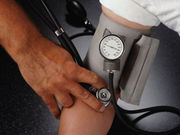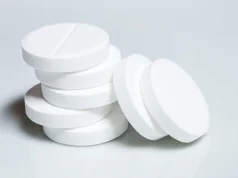Latest findings from national trial show it lowers chances of heart failure, even in older adults
MONDAY, May 16, 2016 (HealthDay News) — Aggressively treating hypertension in older adults can pay off, according to new study results from SPRINT (the Systolic Blood Pressure Intervention Trial). The findings were presented at the annual meeting of the American Society of Hypertension, held from May 13 to 17 in New York City.
SPRINT aimed to get patients of all ages down to a systolic blood pressure of 120 or below. The SPRINT trial included over 9,300 patients aged 50 and up, recruited from nearly 100 clinics across the United States. The trial, which began in 2009, was stopped early when it became clear that tighter control was better: Patients who achieved lower numbers were one-quarter to one-third less likely to die or suffer a heart attack, heart failure, or stroke.
Patients on tight blood pressure control were 38 percent less likely to be hospitalized for worsening heart failure. And even those at increased risk of heart failure benefited. That included patients aged 75 and older, blacks, and patients with kidney disease or a history of cardiovascular issues or stroke. On average, patients on tighter blood pressure control used three medications, versus two in the group on standard care.
Another study presented at the meeting focused on potential downsides. The researchers, from Wake Forest University and the University of Florida, found that patients on tighter blood pressure control faced a slightly higher risk of dizzy spells and syncope: Just over 3 percent had problems with dizziness, versus 2 percent of other patients. The findings were nearly identical when it came to syncope. But among people older than 75, those on tighter blood pressure control were actually 21 percent less likely to fall and suffer an injury.
Copyright © 2016 HealthDay. All rights reserved.








